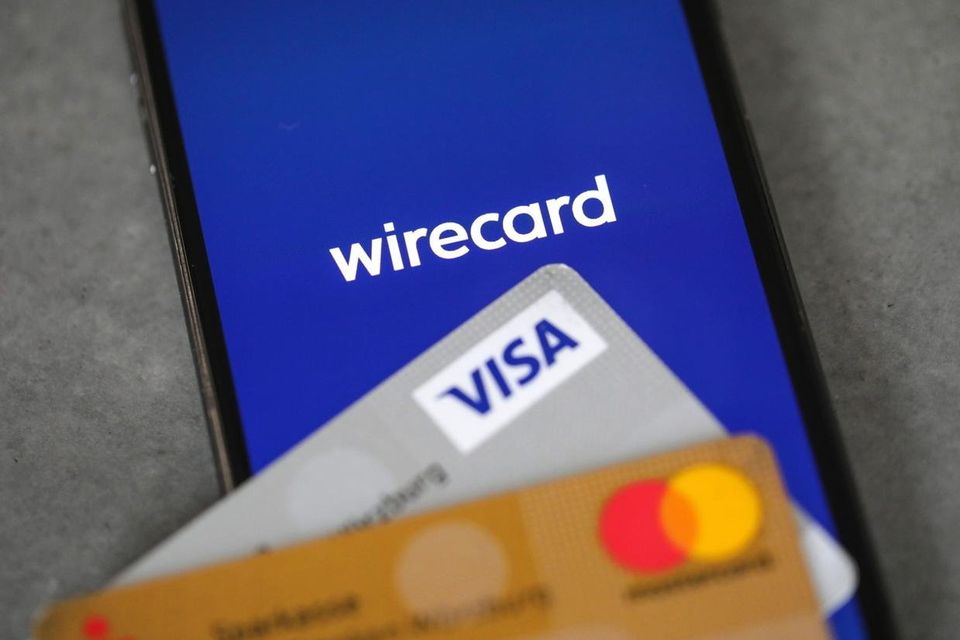Irish accountants fined over Wirecard audit work
Photo: Alex Kraus/Bloomberg
Two Irish accountants have been hit with fines for their role in the Wirecard scandal, one of the biggest financial frauds in German history.
The Irish Auditing & Accounting Supervisory Authority (IAASA) imposed fines totalling €30,000 on Tony Kelly and Alison Gray, who audited the accounts of Wirecard UK & Ireland Limited, a subsidiary of the German payments processor.
IAASA imposed a “severe reprimand” on Mr Kelly and fined him €19,500 for the two years – 2016 and 2017 - he audited the accounts, while Ms Gray got a severe reprimand and a €10,500 fine for a single year, 2018.
The punishments were imposed after both accountants reached settlement agreements with IAASA, which reduced the financial sanctions to reflect their “admissions and cooperation”.
The two worked for BCK, a now defunct firm.
Although the audit of Wirecard UK & Ireland did not fall under IAASA’s inspection regime, the body used power under the companies act to investigate because the matter was of significant public interest.
“This is the first time that IAASA has sanctioned individuals using this power,” said IAASA chief executive Kevin Prendergast.
“The failures in audit identified were significant and this is reflected in the sanctions and fines.”
IAASA said it found several areas of non-compliance with international auditing standards, including their responsibilities relating to fraud, identifying and assessing material misstatement, and responding to risks, audit evidence, external confirmation and related parties.
“The Authority considers that the conduct in question was a serious departure from the standards expected of a statutory auditor,” IAASA said in the settlement agreements. “There were numerous departures from the standards identified and there was a lack of professional scepticism applied when conducting this complex audit.”
Wirecard filed for insolvency in June 2020, owing creditors almost $4bn, after disclosing a €1.9bn hole in its accounts that EY said was the result of a sophisticated global fraud.
The company, founded in 1999, began by processing payments for gambling and pornography websites before becoming a fintech star and a member of Germany's blue chip DAX index.
Wirecard executives went on trial in December, two years after the collapse of the company sent shockwaves throughout Germany’s business and political establishment.
former chief executive Markus Braun and two other high-ranking managers of the defunct blue-chip company are facing a number of charges, including fraud and market manipulation, and could be jailed for up to 15 years if convicted.
Mr Braun denies wrongdoing and accuses others of running a shadow operation without his knowledge.
The prosecution has said Wirecard's management invented vast sums of phantom revenue to hoodwink investors and creditors.
"Politicians, financial regulators, banks, auditors, supervisory boards - almost everyone has made a fool of themselves with Wirecard, with high costs for investors," said Danyal Bayaz, state finance minister of Baden-Wuerttemberg and formerly on a parliamentary committee investigating Wirecard, told Reuters.
Earlier this month Germany's accounting watchdog handed the 2016-2018 auditor of Wirecard, named in the company's annual reports as EY, a €500,000 fine and banned it from taking on new audits for companies of public interest for two years.
(additional reporting, Reuters)
